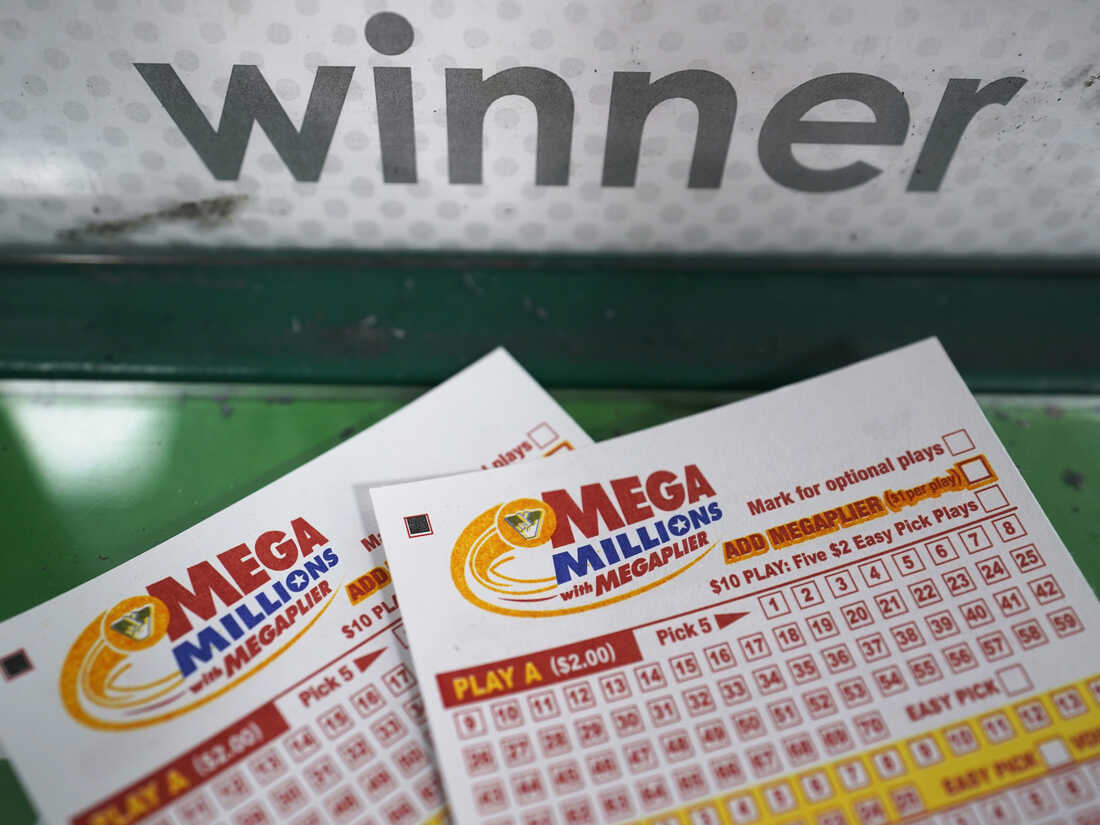[ad_1]

The winning lottery ticket in the recent Mega Millions jackpot is worth $1.337 billion, but because of an Illinois law, the identity of who bought it might never be revealed. In most states, anonymity isn’t an option.
Steve Helber/AP
hide caption
toggle caption
Steve Helber/AP

The winning lottery ticket in the recent Mega Millions jackpot is worth $1.337 billion, but because of an Illinois law, the identity of who bought it might never be revealed. In most states, anonymity isn’t an option.
Steve Helber/AP
Whoever recently won the $1.337 billion Mega Millions jackpot won’t ever have to reveal their identity. The Illinois Lottery says that winners of prizes over $250,000 can request that their name and hometown be kept confidential.
That isn’t the case in many states, but a growing number of state legislators have sought to grant anonymity to lottery winners and offer them a sense of privacy and security.
“It’s been actually a little trend in the industry over the past, every four or five years, to look at doing anonymity — for legislatures to go in and change the way the lotteries operate and put in the anonymity clauses,” Gregg Edgar, executive director of the Arizona Lottery, told NPR.
In Arizona, lottery winners used to have just 90 days of secured anonymity before that person’s information became public record. Now, the organization’s website says “winners of $100,000 or greater may elect to keep their name permanently confidential.”
Why do few states grant anonymity?
The North American Association of State and Provincial Lotteries, a nonprofit trade association, says players cannot remain anonymous in most jurisdictions.
“State and provincial lawmakers want the public to know that the lottery is honestly run and so require that at a minimum the name of the winner and their city of residence be made,” its website reads. “This way the public can be reassured that the prize really was paid out to a real person.”
Edgar said he has a fiduciary responsibility to Arizona’s budget to be transparent about how the organization earns and spends the money.
“For a lot of us, we look at it as — this is public funds, this is public [money], we need to make sure that we’re transparent and that people can see that there are winners that come through,” he said. But, he added, that transparency has to be balanced against protecting the safety of winners.
Edgar expects that pushes to protect the anonymity of lottery winners will continue in other states across the country as jackpots continue to grow.
States have their own public records laws
Vermont is among the majority of states that don’t grant anonymity.
“While the Lottery does routinely honor requests from winners not to post their personal information on social media, any person can still request to obtain copy of, or to inspect, records produced or acquired by the Lottery in the course of its business under the Vermont Public Records Act,” said Wendy Knight, commissioner of the state’s liquor and lottery department, in a statement to NPR.
“Any player who is concerned about privacy and security issues related to claiming a prize may want to obtain professional services through an accountant, attorney, tax adviser and/or other consultant to assess and strategize about their available options and decide what makes the most sense for them,” Knight added.
Lawmakers who have pushed for the anonymity of lottery winners have cited privacy and safety concerns. A 2021 law in Missouri now makes it a crime to reveal a lottery winner’s identity.
Supporters of the legislation wanted to protect winners from threats or harassment when others found out about their prize, according to an earlier report from the Associated Press.
For information on anonymity where you live, check your state lottery’s website.
[ad_2]
Source link



